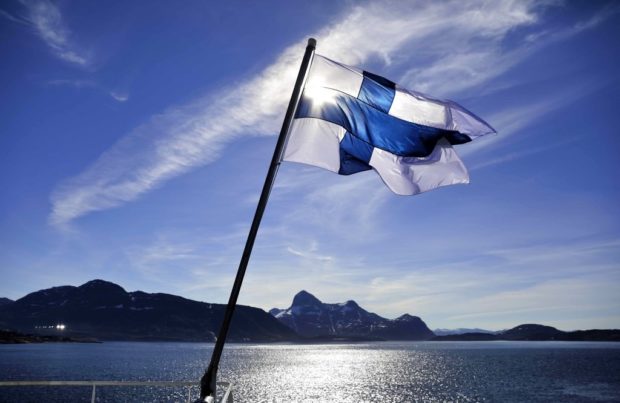
Flag of Finland | PHOTO: AP Photo/David Goldman, file
Helsinki, Finland — A Helsinki court on Friday found two Finnish newspaper journalists guilty of disclosing national secrets and fined one of them, sparking concern over press freedom.
The verdict concerned an article published by Helsingin Sanomat in December 2017 and containing ten-year-old details on military intelligence operations “that had been classified in the interests of Finland’s external security”, the court said.
The crime of disclosing a national secret, which falls under offenses of treason, can carry a prison sentence of up to four years.
But the court issued only what are called 50 day-fines, based on personal income, to the journalist deemed most responsible.
The court took into account as a form of punishment the length of the trial and the “exceptional publicity” it attracted.
“We are disappointed with the verdict,” said the paper’s editor-in-chief Antero Mukka.
“Despite lenient outcomes, the damage to freedom of expression has already been done.”
The in-depth article reported on the “organization, capability and procurement” of a military intelligence communications centre in Jyvaskyla, 230 km north of Helsinki.
“There were strong societal grounds for writing this article,” said Sanoma Media group which owns the newspaper.
At the time of publication, Finland was drafting new legislation on intelligence activities.
According to Sanoma Media, the aim of the new legislation “was to give intelligence organizations very broad powers to monitor network traffic, which would curtail citizens’ fundamental rights”.
But the court found that going into detail with classified information could only have been permissible on public interest grounds if it included “a significant disclosure”, such as an example on “abuse of power or other unlawful activity by authorities”.
According to the district court, the article had not contained such significant information.
While the published information did not “endanger Finland’s external security”, the information could not be regarded as “harmless”.
Pavol Szalai, head of the EU desk at Reporters Without Borders, said the verdict was “very troubling”.
When “a country ranked on the top of the World Press Freedom Index” prosecutes journalists for “reporting on national security issues,” it sets “a dangerous precedent for press freedom internationally,” he said.